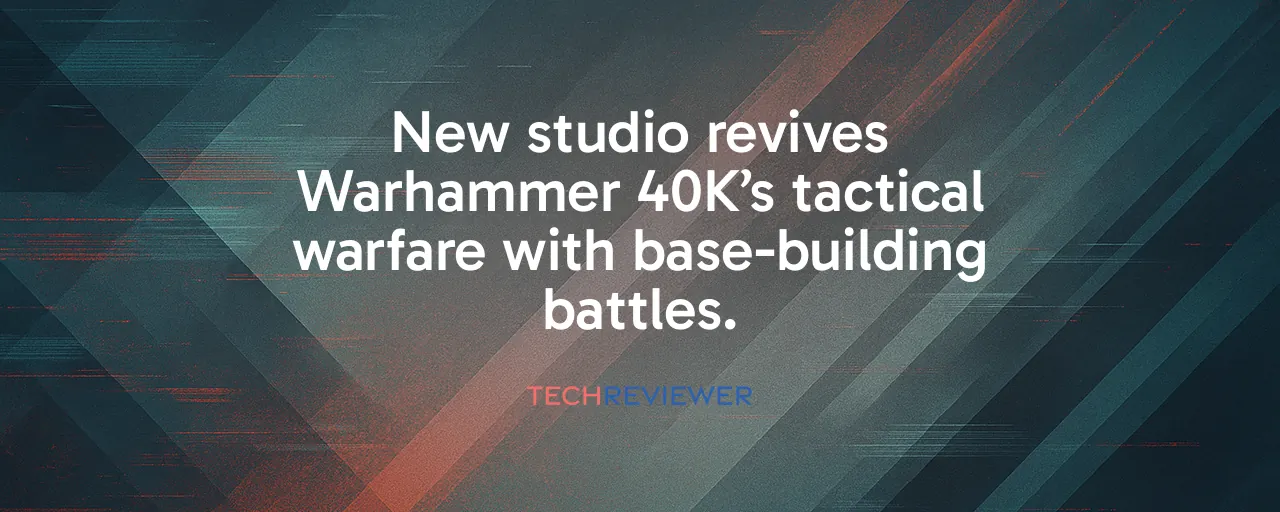A New Chapter for a Storied Franchise
When Warhammer 40,000: Dawn of War 4 debuted at Gamescom 2025, it came out of nowhere with a playable build that had players commanding Space Marines against Ork hordes. King Art Games, the studio behind Iron Harvest, has taken the helm, marking the first main-line entry not developed by Relic Entertainment. The studio is promising a return to the large-scale, base-building tactics that defined the original Dawn of War in 2004. With a 2026 release on the horizon, this shift has the PC strategy community buzzing about whether this new vision can honor the series' roots while pulling in fresh faces.
King Art's approach leans hard into what made the first game a classic: sprawling battles, tactical squad management, and the grimdark chaos of the Warhammer 40K universe. Early demos showcased four launch factions: Space Marines, Orks, Adeptus Mechanicus, and Necrons, each with distinct playstyles. The shift away from Relic, whose Essence engine powered prior entries, has sparked debate. Longtime players worry about losing the series' signature physics-driven carnage, but King Art's fresh perspective offers a chance to shake things up.
Building Bigger Battles With the Aeterna Engine
At the heart of Warhammer 40,000: Dawn of War 4 lies King Art's proprietary Aeterna engine, built to handle up to 120-unit platoons tearing through dynamic terrain. During Gamescom, a 15-minute skirmish demo showed Space Marines blasting apart cover while Orks charged across deformable battlefields, with early benchmarks hitting 120 fps at 1440p on an RTX 4070. The engine's support for Vulkan and DirectX 12 ensures smooth performance across modern PCs, and its expanded Sync-Kill animations, brutal motion-captured finishers, tie directly to a new morale system that adds tactical depth.
The engine also opens doors for modders. King Art has hinted at robust Steam Workshop support, letting players craft custom maps and campaigns. This move could extend the game's lifespan, much like Iron Harvest's community-driven patches kept players engaged long after launch. However, challenges remain. Packing so many units on-screen risks visual clutter, and balancing four asymmetrical factions without Relic's prior framework is no small feat.
Lessons From the Past: Iron Harvest and Company of Heroes 3
King Art's track record offers clues about Dawn of War 4's potential. Their 2020 title, Iron Harvest, won praise for its transparent development, with regular community feedback shaping balance patches. This approach could help Dawn of War 4 avoid the pitfalls of Relic's Company of Heroes 3, which launched in 2023 to mixed reviews due to clunky balance and a campaign that felt disconnected from fan expectations. King Art's commitment to co-op campaigns and adaptive AI tutorials suggests they're learning from these missteps, aiming to make Dawn of War 4 accessible to newcomers and satisfying veterans.
Both case studies highlight a key lesson: listening to players matters. Iron Harvest's patch cadence kept its community loyal, but Company of Heroes 3's slow course correction alienated some fans. King Art's planned closed alpha in Q4 2025, open to select creators, signals a willingness to iterate early and often. If they can nail faction balance and deliver on modding promises, Dawn of War 4 could carve out a strong niche in the resurgent RTS market.
Balancing Nostalgia With Newcomer Appeal
Dawn of War 4 faces a tightrope walk between honoring Warhammer's diehard fans and welcoming players daunted by the RTS learning curve. The return to base-building and large-scale battles has veterans cheering, especially those who felt Dawn of War III's 2017 MOBA-RTS hybrid strayed too far. Redesigned tutorials and drop-in co-op campaigns aim to ease newcomers into commanding Necron swarms or Ork warbands. Accessibility features like color-blind modes and remappable controls are also in focus, addressing the genre's complexity head-on.
However, some Warhammer lore fans question whether King Art can capture the universe's satirical edge without tipping into caricature. The series' hyper-violent aesthetic, likely earning an M-rating from the ESRB, sparks ongoing debates about its tone. The promise of co-op and modding tools could, however, bridge divides, letting players shape their own stories in the 41st millennium. With Deep Silver's marketing muscle and Games Workshop's licensing push, Warhammer 40,000: Dawn of War 4 is poised to test whether a classic RTS can thrive in 2026.
